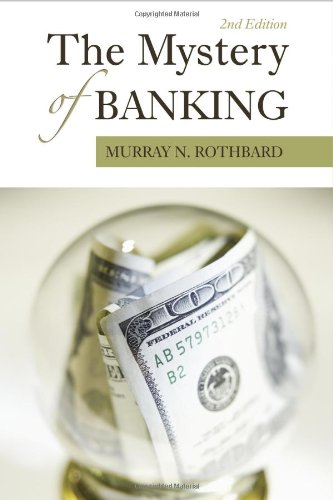In a Cobden Centre/ICM survey 2,000 people, a staggering 74 per cent of the respondents think that they own the money in their bank account. Only 8 per cent know the correct answer – that the banks owns it.
 The Mystery of Banking
Best Price: $2.23
Buy New $7.57
(as of 07:55 UTC - Details)
The Mystery of Banking
Best Price: $2.23
Buy New $7.57
(as of 07:55 UTC - Details)
We all know what notes and coins are. They allow us to exchange the fruits of our work for the goods of others. When we deposit cash in Bank A – say £100 – we lend this money to the bank. But as soon as you make a deposit it becomes the bank’s. They then lend the £100 to say an entrepreneur, who banks it in bank B. Like magic, we now have you, who have a claim to "your" £100, and the entrepreneur, who also has an equally valid claim to "his" £100.
This happens 33 times for every £100 deposited in the British economy on average, meaning that for every £100 deposited, it is lent out to 33 people. This cash cannot exist in two places at the same time. So what bank A does, is write you an IOU. Yes, your bank-statement is a mere IOU, the bank saying " bank A owes you £100 on demand." This is called a demand-deposit.
We now see that demand-deposits are created out of thin air. Indeed, these are just ledger-entries from one bank customer to another. The creation of this credit causes a credit-induced boom that then becomes a bust.
September 16, 2010





